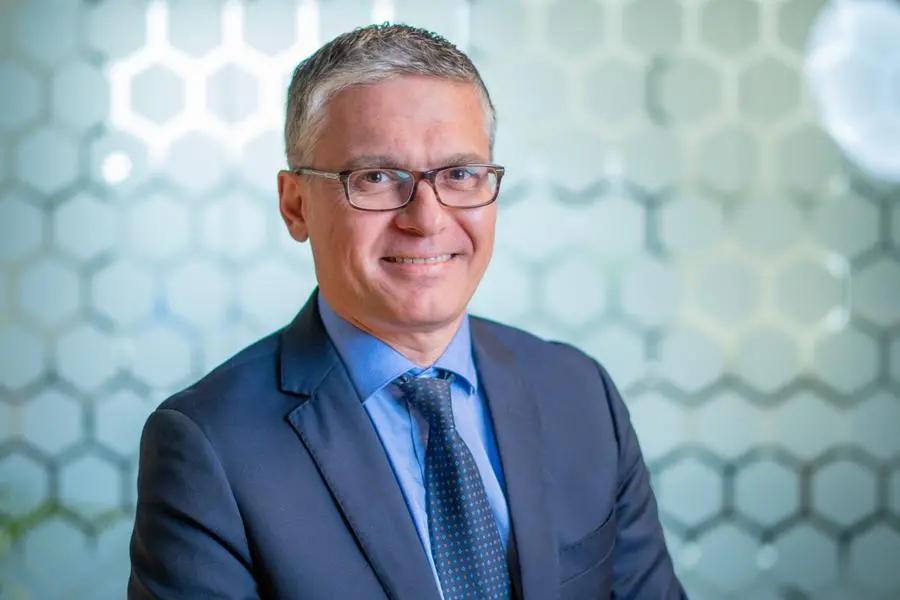PHOTO
Enova was established in 2022 as a joint venture (JV) between UAE-based retail and leisure giant Majid Al Futtaim and France's Veolia to maintain key Majid Al Futtaim assets.
The JV proved advantageous as it provided the new company, which is now exploring opportunities beyond the UAE, with a sizeable portfolio at the start, according to its CEO Renaud Capris.
Enova followed Majid Al Futtaim's expansion into regional countries. Along the way, it shed its old name of MAF Dalkia Middle East for the current name and expanded its asset portfolio out of Majid Al Futtaim, which now accounts for only 30 percent of its overall portfolio.
In 2023, Enova intends to expand its business in Saudi Arabia, Egypt, and Turkey.
"I would say that more or less 50 percent of our portfolio is in the UAE, so we have to put in more efforts [to expand outside]," Capris told Zawya Projects in an interview.
In 2015, the company also added energy management to its services. "In 2015, we decided to get ESCO [Energy Service Company] certification [in Dubai], which completely changed the company's mindset from a pure facility management (FM) player to an integrated FM and energy management solutions company," Capris said.
Enova currently has three business lines: FM, energy management, and solar, and operates in the five GCC states, Egypt, Lebanon, and Turkey. The company has 25 energy performance contracts and 34 solar projects that have delivered AED 376 million in cost savings, 526 million kWh in total electricity savings, and 429,000 tonnes of total CO2 reduction.
Excerpts from the interview:
What is the composition of Enova's current project portfolio?
Currently, we have 47 malls and nine international airports in our portfolio. We started in hotels with Majid Al Futtaim's 13 properties. Now, we have 30 hotels, which includes Emaar Hospitality. We also have six hospitals and clinics, a segment where we want to expand further. We employ 5,000 people in eight geographies.
With our integrated FM and energy management offering, we are proud that we can reduce energy consumption by around 10 percent, even without investment. It's an interesting offer for the client because not all can invest in energy efficiency. A few years ago, it was extremely rare for clients to specify key performance indicators for energy efficiency. Today, in big tenders for malls, for transportation, stakeholders are asking for a commitment to reduce energy consumption by 5 percent, 7 percent, and even 10 percent with a baseline.
What are your plans for the future?
We operate in eight geographies, but Saudi Arabia, Egypt, and Turkey are our top three markets because of their high energy intensity. The UAE is a more mature market for energy efficiency projects – you can find more seasoned ESCOs in the UAE than in Saudi and Turkey.
We will expend more efforts in Saudi Arabia this year and intend to recruit more engineers and building managers. We have similar plans for Egypt and Turkey.
We have been highly successful in solar projects in Turkey, where we incorporated a company a year and a half ago. Turkey is offering many incentives to support the growth of solar, so this is the business we are targeting.
How would you describe the nature of the opportunities?
In Dubai or Abu Dhabi, the assets are generally less than 20 years old and already state-of-the-art. On the other hand, in Saudi Arabia, the assets are much older, so retrofit projects are usually bigger in scale. The price of electricity is also a key driver - we may deploy 15 measures when the cost of electricity is high, half of them when the cost is low, and get 20 to 40 percent energy savings.
Enova works with super ESCOs like Dubai's Etihad ESCO, Abu Dhabi's ADES, Ras Al Khaimah's REEM in the UAE, and Tarshid in Saudi Arabia. Their energy efficiency mandate covers government and public sector buildings, so we deploy ‘Guaranteed Savings” model, where the ESCO guarantees the energy savings, the capex level, commissioning while the super ESCO pays for the capex and the asset's operation and maintenance.
With private sector, we can ensure the financing of the project. This is the “Shared Savings” model, where the client takes a portion of the savings while the ESCO takes the majority of the savings until the payback period is achieved. After that, the client will take majority of the savings.
For Enova, super ESCOs are the bigger business as public sector buildings are big and the capex is significant. But we have also used the ‘Guaranteed Savings’ model in the private sector. Last year, we signed with Aldar Properties in Abu Dhabi to retrofit all their commercial buildings. They funded the project themselves without external financing. It was the same with Dubai Properties two years back, where they invested their equity.
Do your customers refer to ESG [Environment, Social, and Governance] in their conversations on energy savings?
Companies invest in energy efficiency projects to save on costs, achieve broader sustainability goals and showcase their achievements. With COP 28 slated to be held in Dubai this year, I am sure it will boost our business in the UAE. Theoretically, if you combine energy efficiency measures and renewable energy, you can become carbon neutral. Some companies launch separate tenders for energy efficiency and solar PV because they consider the latter as one of the measures to reduce their CO2 footprint. We see solar PV as one of the many energy conservation measures that we will implement for clients, but we are flexible.
(Reporting by Anoop Menon; editing by Seban Scaria)





















